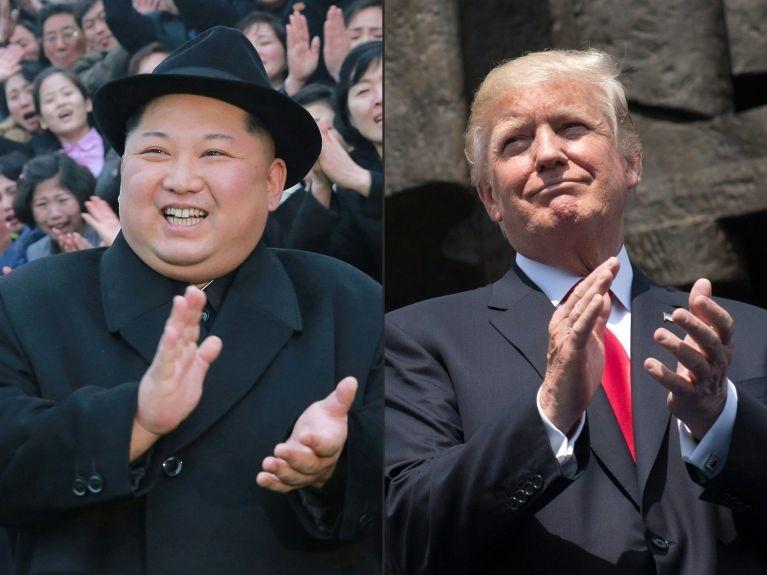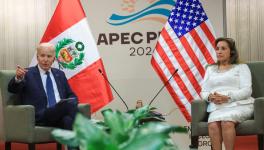Korean Peninsula Sees a Bilateral Push For Peace

Image Courtesy: mercurynews.com
A series of developments in the Korean peninsula over the last week have further boosted possibilities of peace in the region. The setting up of a direct hotline between the leaders of North Korea and South Korea - Kim Jong-un and Moon Jae-in - ahead of the summit between the two on April 27 is a key moment in strengthening direct links between the countries. Other developments over the week included Kim Jong-un announcing the suspension of tests of nuclear weapons and intercontinental ballistic missiles, and a statement by President Moon that North Korea may not insist on the withdrawal of US troops from South Korea as a condition for denuclearisation.
The setting up of the hotline and the upcoming summit of the leaders south of the demilitarized zone follows an invitation extended to the South Korean President to visit Pyongyang during the visit of Kim Jong-un’s sister Kim Yo-jong Seoul on the sidelines of the Pyeongchang Winter Olympics. Subsequently, a delegation from South Korea visited Pyongyang.
The steady progress comes even as the United States has been taking contradictory positions on the peace process. President Donald Trump now claims that the developments have his ‘blessings’ and may even meet Kim Jong-Un. CIA Director Mike Pompeo is already believed to have met the North Korean leader. In the recent past however, the same US President has threatened to to derail the process and ratched up rhetoric on many occasions. North Korea has consistently maintained that if South Korea and United States could provide security guarantees, it would end its ballistic missile and nuclear program.
Almost 100,000 US military personnel have been stationed in the region, with permanent navy bases and bomber aircrafts capable of striking North Korea with nuclear weapons. A short while after the visit of the South Korean delegation to Pyongyang, joint military exercises simulating an invasion of North Korea by the US and South Korea, involving hundreds of thousands of soldiers, were resumed. North Korea has consistently been seeking the removal of the 28,500 US troops stationed in the South, ending the nuclear umbrella the US provides to Japan and South Korea and the termination of such annual joint military exercises as a condition for denuclearisation. Recently, the US allocated another $200 million in Department of Defense funds to the THAAD missile defense system, which minimises the deterrence capacity of North Korea.
Kim Jong-un has however reaffirmed that North Korea will continue with denuclearisation, the latest announcements being further proof of the same. These developments, along with the setting up of the hotline, point to the steady strengthening of ties between the neighbours. The protection of South Korea from North Korea has been used by the US as a pretext for massive military deployment for decades. For both the US and Japan, another key player in this policy, this has meant the creation of an entire regional strategy that has often proved an obstacle to harmonious relations between the countries of the region and bilateral settlement of disputes. The recent initiatives by both North and South Korea to ease tensions may be the most significant steps towards the dismantling of this strategy and could drastically transform the geo-political scenario in the region.
Get the latest reports & analysis with people's perspective on Protests, movements & deep analytical videos, discussions of the current affairs in your Telegram app. Subscribe to NewsClick's Telegram channel & get Real-Time updates on stories, as they get published on our website.
























